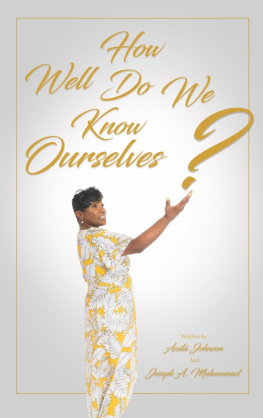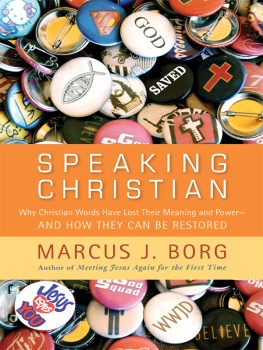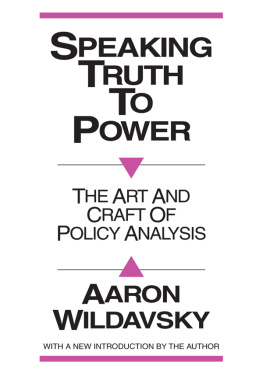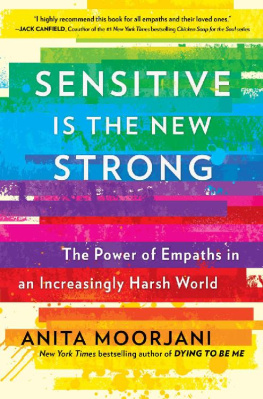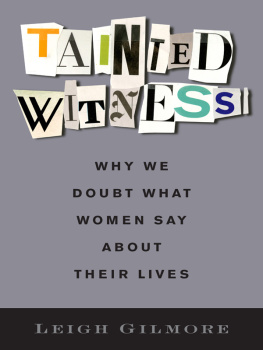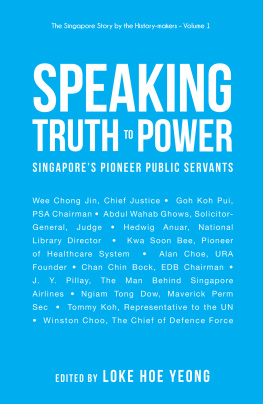Anita Hill - Speaking Truth to Power
Here you can read online Anita Hill - Speaking Truth to Power full text of the book (entire story) in english for free. Download pdf and epub, get meaning, cover and reviews about this ebook. year: 1998, publisher: Knopf Doubleday Publishing Group, genre: Home and family. Description of the work, (preface) as well as reviews are available. Best literature library LitArk.com created for fans of good reading and offers a wide selection of genres:
Romance novel
Science fiction
Adventure
Detective
Science
History
Home and family
Prose
Art
Politics
Computer
Non-fiction
Religion
Business
Children
Humor
Choose a favorite category and find really read worthwhile books. Enjoy immersion in the world of imagination, feel the emotions of the characters or learn something new for yourself, make an fascinating discovery.

- Book:Speaking Truth to Power
- Author:
- Publisher:Knopf Doubleday Publishing Group
- Genre:
- Year:1998
- Rating:4 / 5
- Favourites:Add to favourites
- Your mark:
- 80
- 1
- 2
- 3
- 4
- 5
Speaking Truth to Power: summary, description and annotation
We offer to read an annotation, description, summary or preface (depends on what the author of the book "Speaking Truth to Power" wrote himself). If you haven't found the necessary information about the book — write in the comments, we will try to find it.
Anita Hill: author's other books
Who wrote Speaking Truth to Power? Find out the surname, the name of the author of the book and a list of all author's works by series.
Speaking Truth to Power — read online for free the complete book (whole text) full work
Below is the text of the book, divided by pages. System saving the place of the last page read, allows you to conveniently read the book "Speaking Truth to Power" online for free, without having to search again every time where you left off. Put a bookmark, and you can go to the page where you finished reading at any time.
Font size:
Interval:
Bookmark:
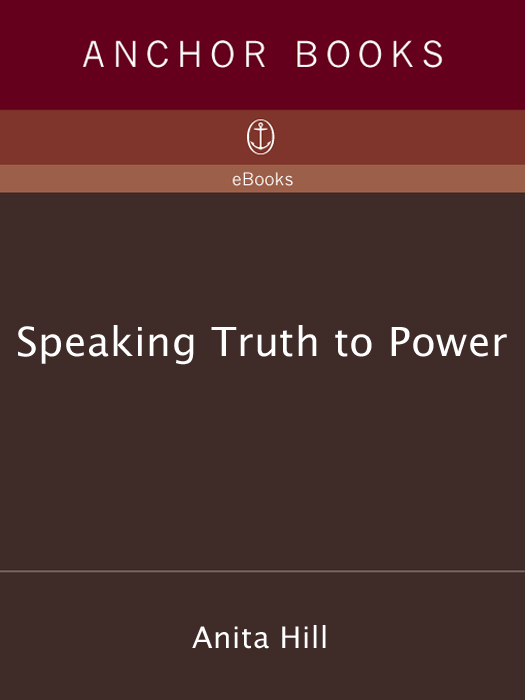
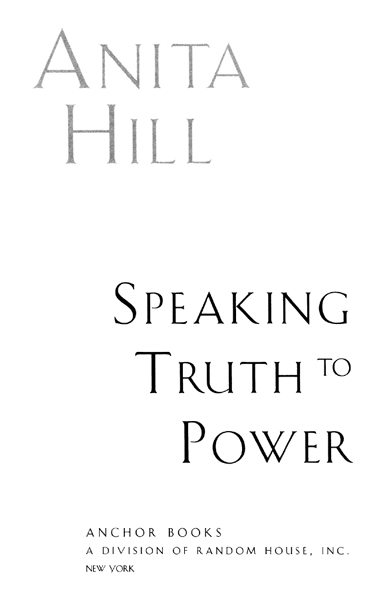

FIRST ANCHOR BOOKS EDITION, NOVEMBER 1998
Copyright 1997 by Anita F. Hill
All rights reserved under International and Pan-American
Copyright Conventions. Published in the United States by
Anchor Books, a division of Random House, Inc., New York,
and simultaneously in Canada by Random House of Canada
Limited, Toronto. Originally published in hardcover in the
United States by Doubleday in 1997. The Anchor Books
edition is published by arrangement with Doubleday, a
division of Random House, Inc.
Anchor Books and colophon are registered trademarks of
Random House, Inc.
The Library of Congress has cataloged the hardcover edition
of this book as follows:
Hill, Anita.
Speaking truth to power / Anita F. Hill.
p. cm.
1. Hill, Anita. 2. Women lawyersUnited StatesBiography.
3. Sexual harassment of womenLaw and legislation
United States.
I. Title.
KF373.H46A3 1997
340.092dc21
[B] 97-1316
eISBN: 978-0-307-77966-3
www.anchorbooks.com
v3.1
T HIS BOOK IS DEDICATED
WITH LOVE AND GRATITUDE
TO MY PARENTS
E RMA AND A LBERT H ILL
M idway through the morning of my testimony at the Thomas confirmation hearing, Senator Howell Heflin, Democrat of Alabama, summed up the Republican attack on my credibility. A former state supreme court judge and trial attorney, Senator Heflin appeared to be deliberating aloud as he explained his approach.
I, and I suppose every member of this committee, have to come down to the ultimate question of who is telling the truth. My experience as a lawyer and a judge is that you listen to all the testimony and then you try to determine the motivation for the one that is not telling the truth.
Now, in trying to determine whether you are telling falsehoods or not, I have got to determine what your motivation might be. Are you a scorned woman? he asked.
No, I said, a bit surprised by the line of questioning but certain of my answer.
Do you have a martyr complex? With his heavy accent and deliberate pacing, martyr came out sounding like mahduh.
No, I dont.
Maybe she is a martyr and doesnt know it, someone behind me snickered.
Do you have a militant attitude relative to the area of civil rights?
No, I dont. I was not certain what he meant, but I knew I was not a militant in the way the term was defined in the 1960s.
The reality of where you are today is rather dramatic, Senator Heflin said. Did you take, as Senator Biden asked you, all steps that you knew how to take to prevent being in the witness chair today?
Yes, I did. Everything that I knew to do, I did. I felt like a child who was being chastised for wandering into traffic.
Senator Heflins questions revealed a truth about the hearing. Generally, questions about motive are raised in the context of a criminal trial. They are designed to elicit the impetus for a criminal act. The prosecution presents the theory that the accused committed the crime out of greed, rage, or passion. The defense attorney attempts to show that none of these factors existed in the case. Heflins questions revealed that I was being treated as a defendant. The Republicans had accused me of lying about Clarence Thomas sexual harassment of me when I worked for him ten years earlier. They effectively shifted the hearing on whether Thomas was suitable to serve on the Court to a hearing on whether I could rebut their presumption that I was lying. Primed by all the rhetoric before the hearing, the American public was predisposed to be suspicious of my statements and my behavior. Before anyone would even listen to my charges, I had to prove that my character was such that I was not guilty of inventing them. Throughout the country, people were poised to register their verdict through the polls taken during the hearing.
Years have passed since October 1991. My world has been forever changed by the events that culminated in the Hill-Thomas hearing. I am no longer an anonymous, private individualmy name having become synonymous with sexual harassment. To my supporters I represent the courage to come forward and disclose a painful trutha courage which thousands of others have found since the hearing. To my detractors I represent the debasement of a public forum, at best, a pawn, at worst, a perjurer. Living with these conflicting perceptions is difficult, sometimes overwhelming.
The transformation of my life began before the hearing with the news reports of my claims. Overnight my world expanded and the number of persons to whom I was accountable grew exponentially as I was questioned about my experience. After the hearing the number of people who felt accountable to me grew just as surprisingly as people sought to explain the event.
I knew on October 11, 1991, that the experience would remain with me forever. I did not know that it would live with me. Gradually, the events that took place in the days and weeks following the hearing revealed that the public would not quickly or easily forget the episode. The continued media interest, like the initial intrusion of the press on my privacy, was unanticipated and uninvited on my part. To them the event was a news story. To me it was my life.
In my first dealings with the press on October 2, I was cautious though naive. By October 13 I was thoroughly skeptical and doubted that the press would discuss sexual harassment with any insight or sensitivity. Nor did I believe that all the journalistic prying was motivated by service to the publics right to know. Some of my suspicions were confirmed when I received a telephone call from an Oklahoma City attorney who represented the owner of a bar popular with lesbians. Apparently, a tabloid reporter had called the owner to find out if I frequented her establishment.
Tuesday, October 15, 1991, the day of the vote on the nomination, became my focal point. Like the first day of a long-awaited vacation, that date stood out in my mind. I saw the vote as an end to the media attention, not a referendum on my testimony, and I convinced myself that once the nomination was debated and voted on by the entire Senate, the corps of reporters would leave Norman, Oklahoma, throw away my telephone number, and move on to the next story. This mental compartmentalization allowed me to go on about my work. But I could find no way to contain the public interest. The telephones in my office rang off the hook with calls from around the country. Each day I would go home to an answering machine filled with messages and out of tape. Daily, I received an average of thirty faxes offering sympathy, extending invitations, or expressing anger over the hearing. Even before I arrived home from Washington, D.C., local florists had begun delivering plants and flowers to my office at the University of Oklahoma College of Law. The pinks, yellows, and reds of the arrangements added a curious kind of festivity to the chaos. The fragrance filled the administrative offices and conference room until they smelled like a perfumery. Still, lovely colors and smells seemed out of place amid frazzled nerves and constantly bleating phones. One of the secretaries in the main office, Rose Martinez-Elugardo, made sure that I saw all the arrangements, collecting the card from each, and students volunteered to take them to local hospitals and nursing homes. Selfishly, I regretted that I could not preserve them all.
Font size:
Interval:
Bookmark:
Similar books «Speaking Truth to Power»
Look at similar books to Speaking Truth to Power. We have selected literature similar in name and meaning in the hope of providing readers with more options to find new, interesting, not yet read works.
Discussion, reviews of the book Speaking Truth to Power and just readers' own opinions. Leave your comments, write what you think about the work, its meaning or the main characters. Specify what exactly you liked and what you didn't like, and why you think so.


